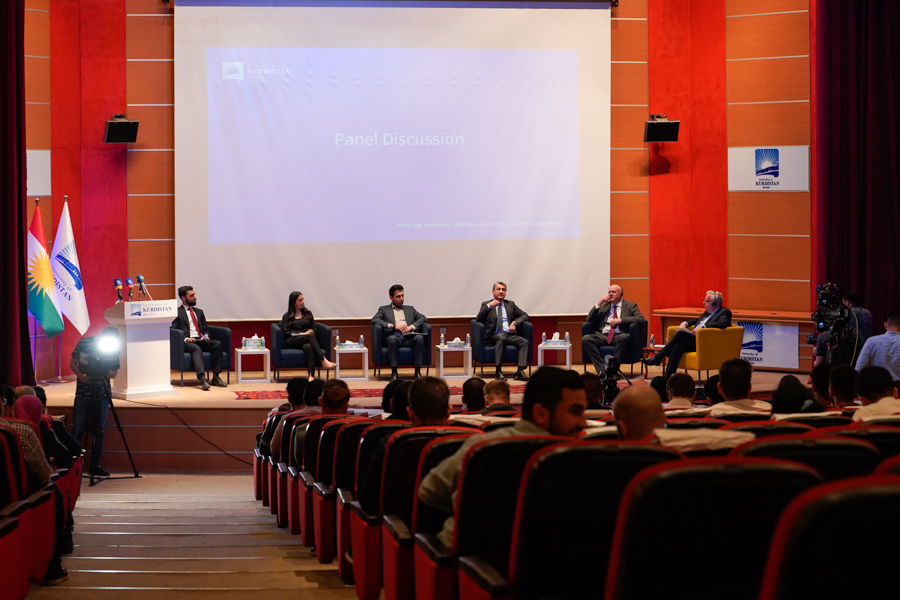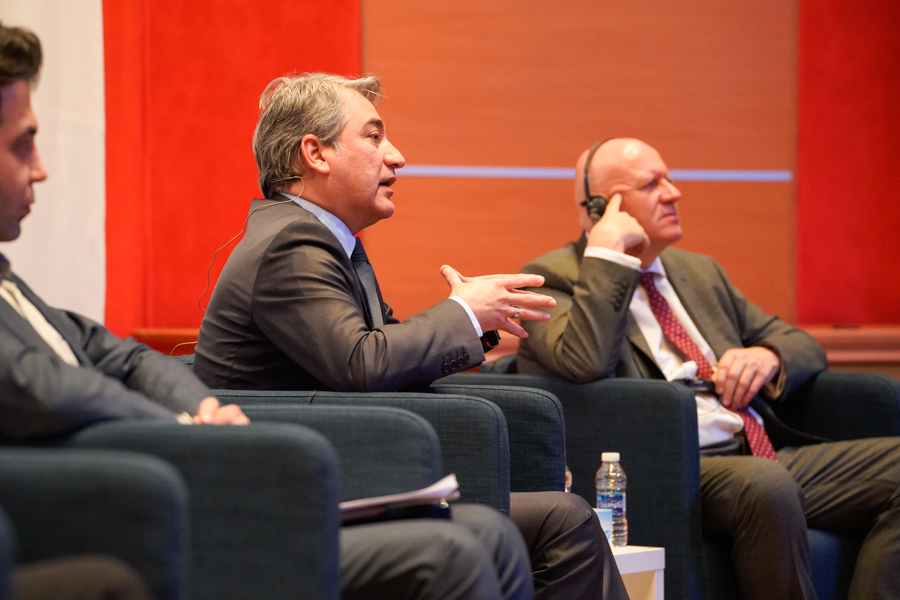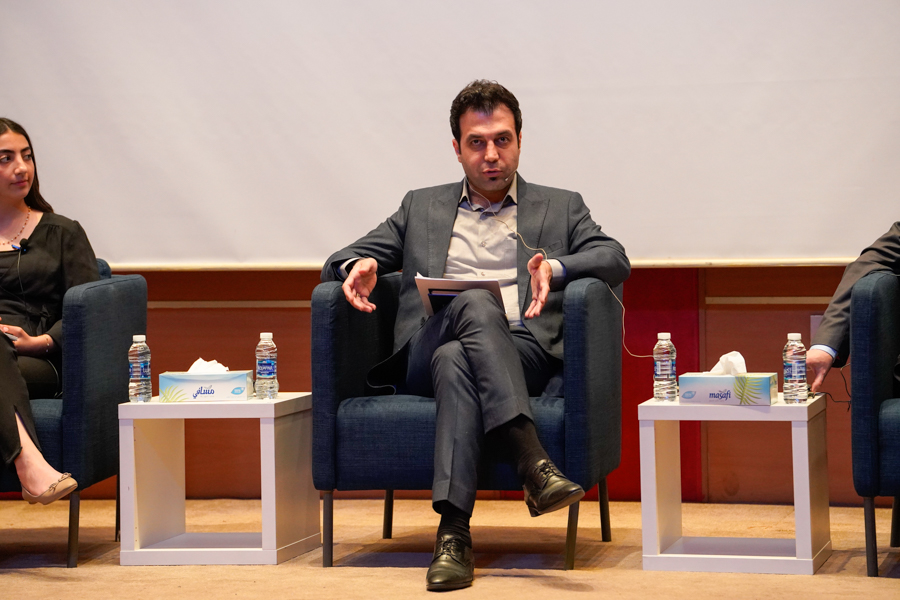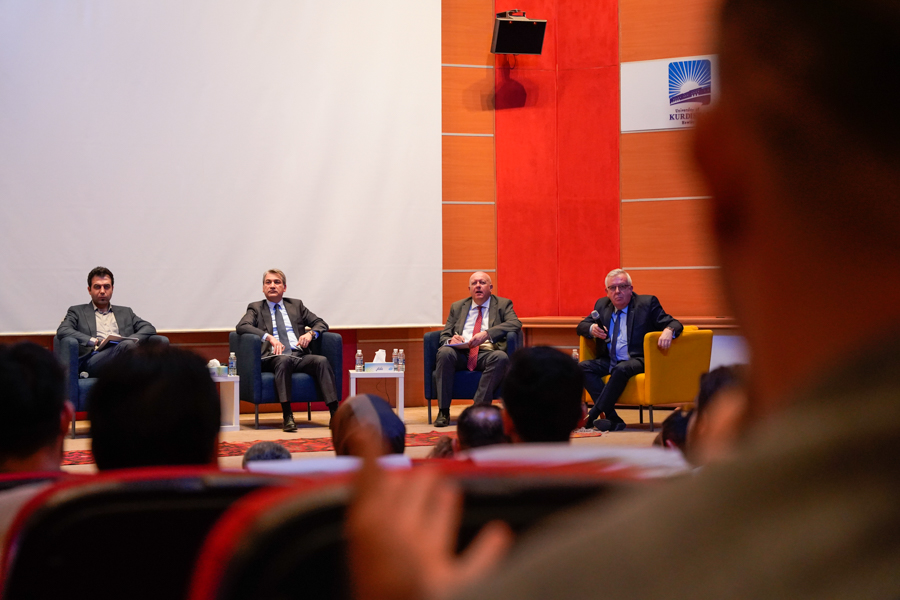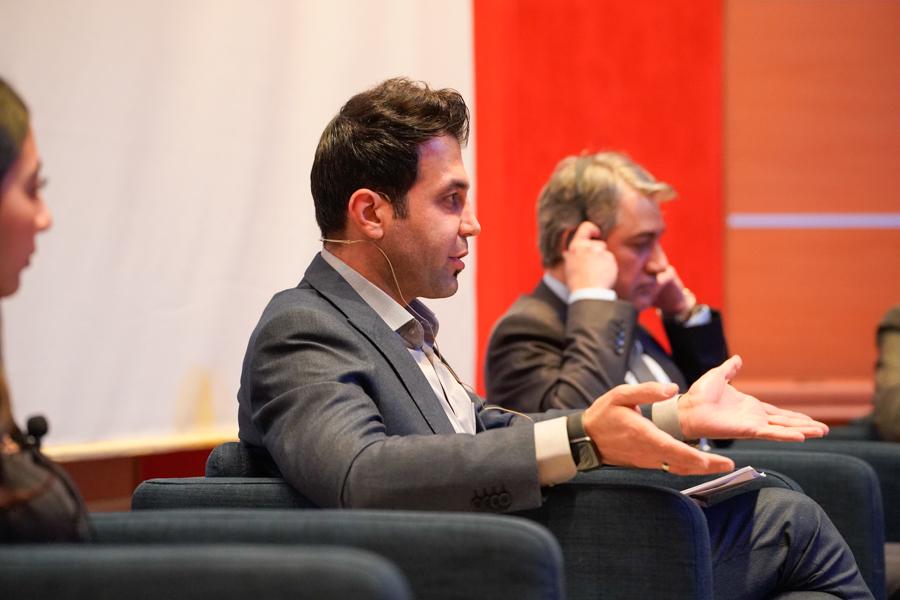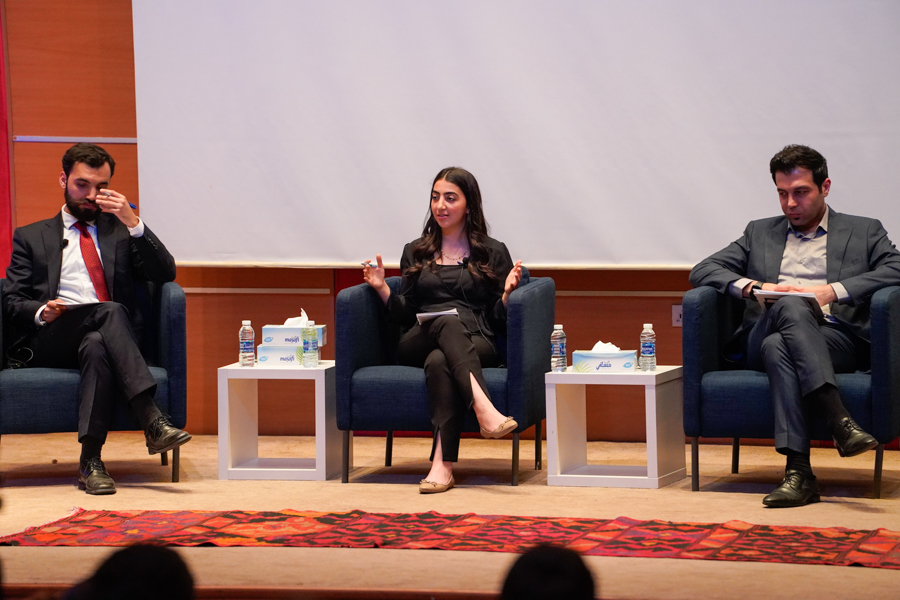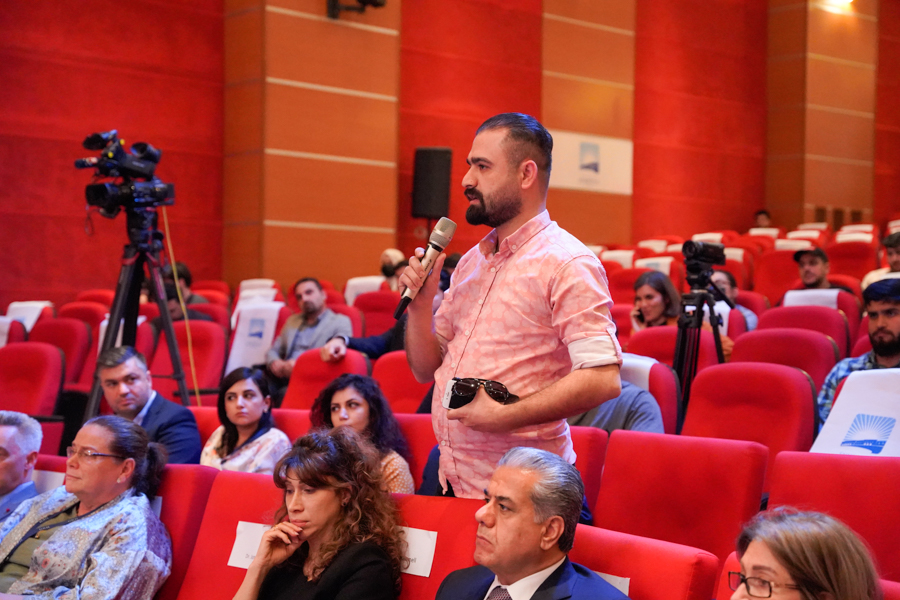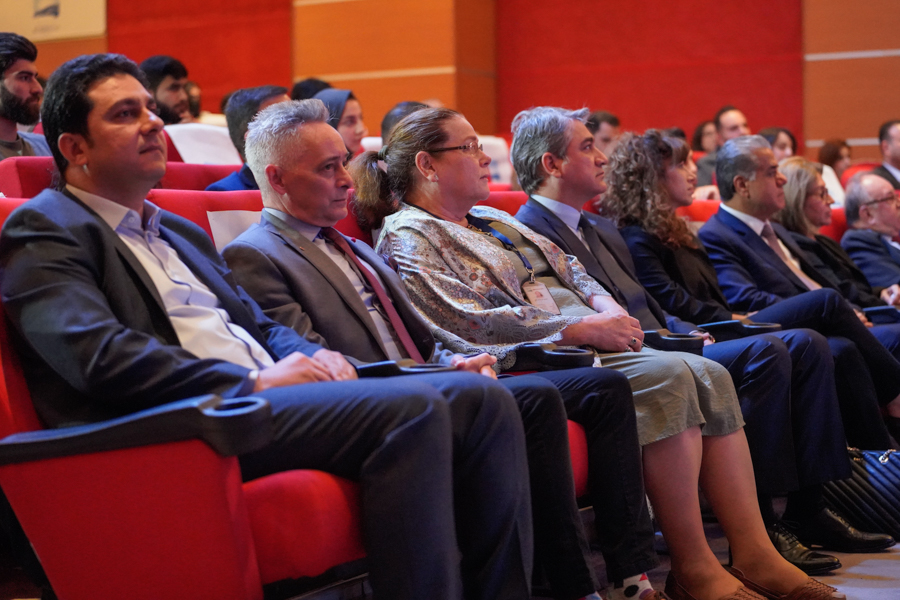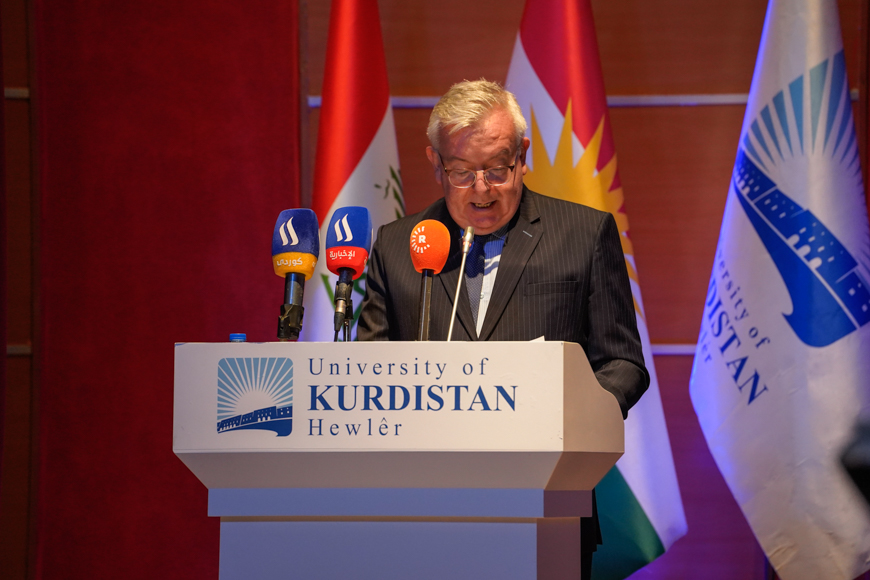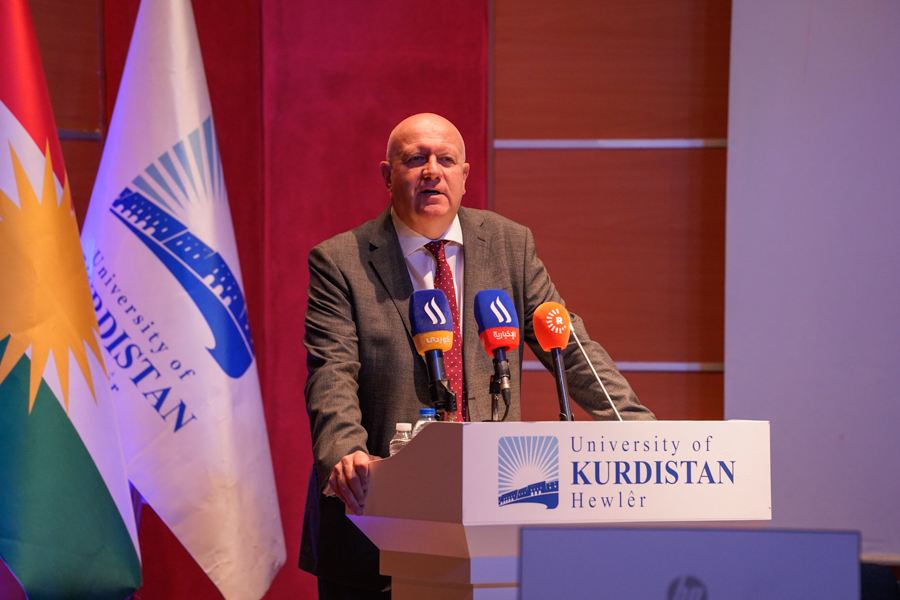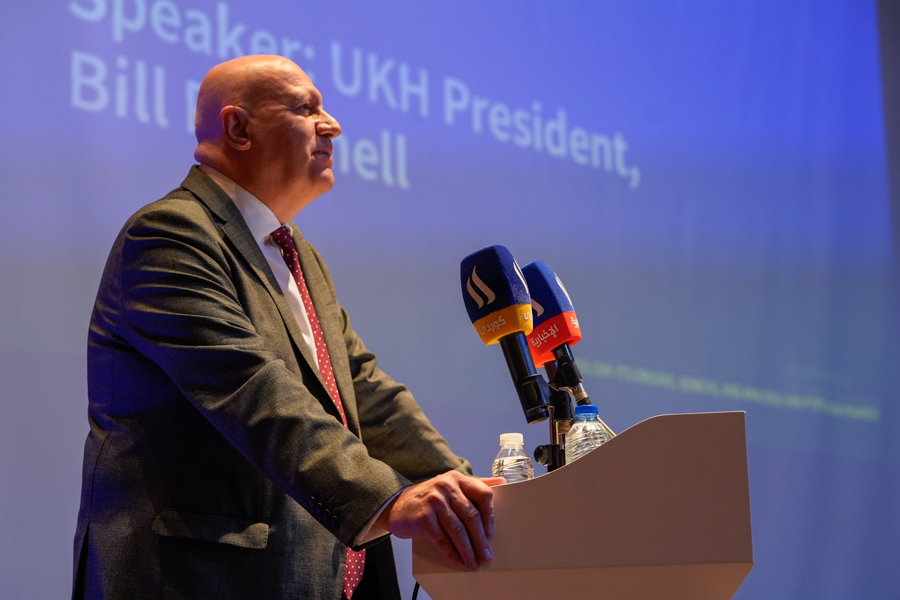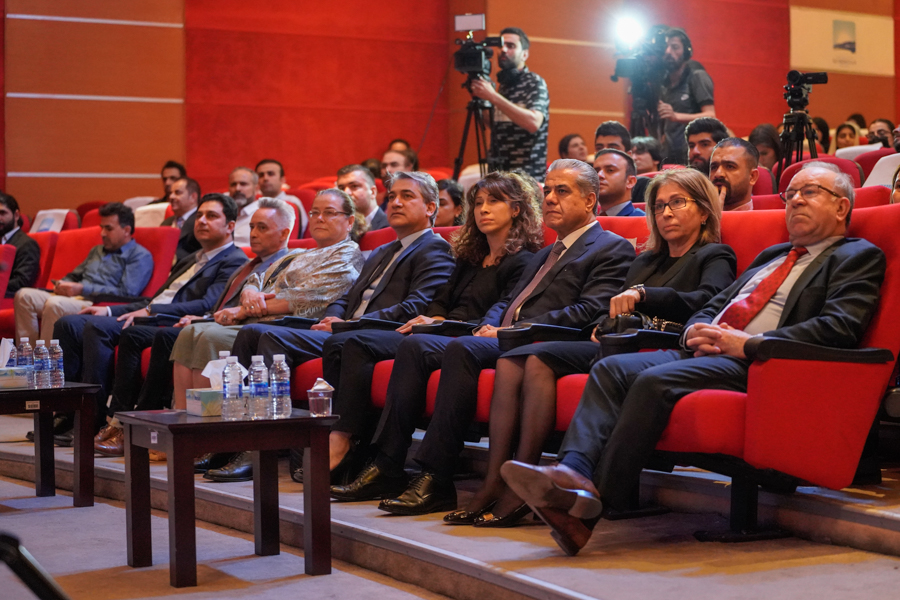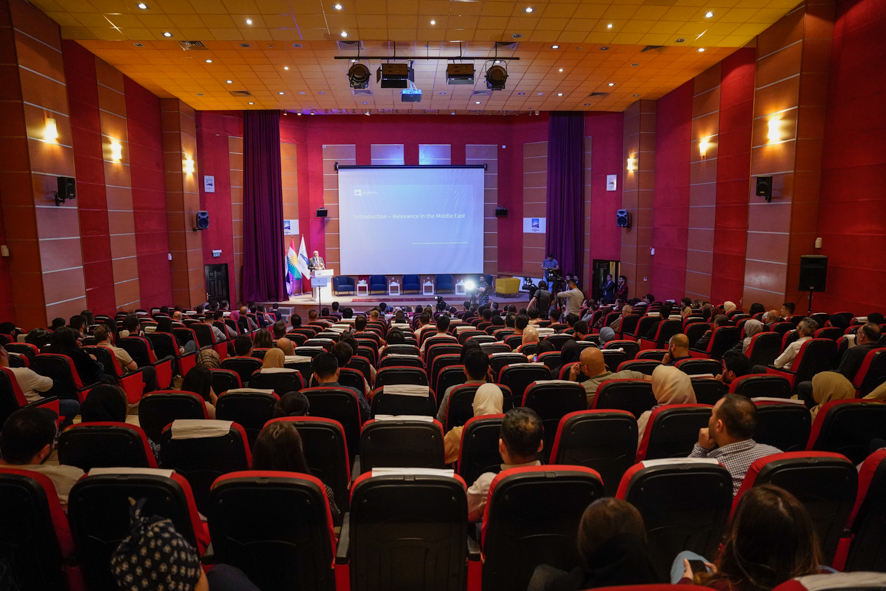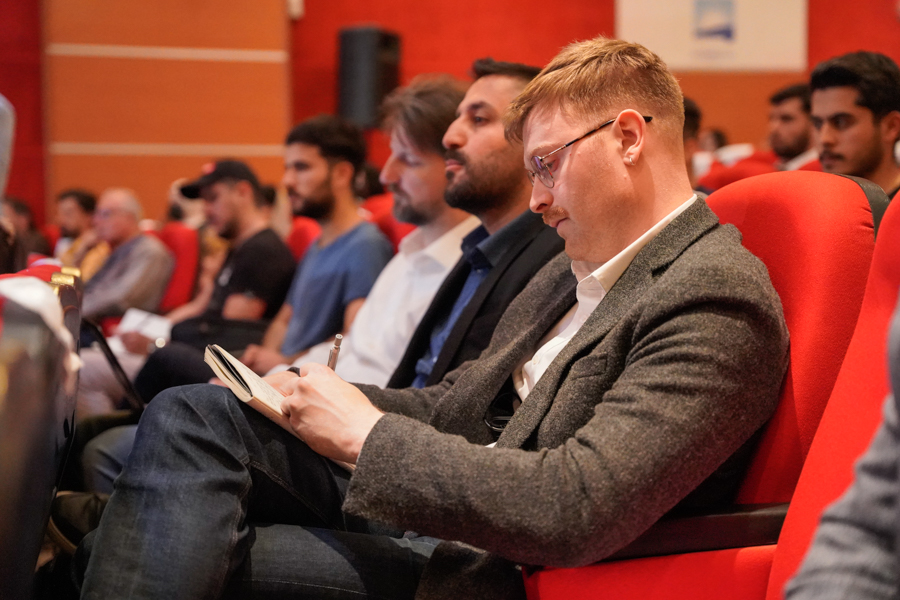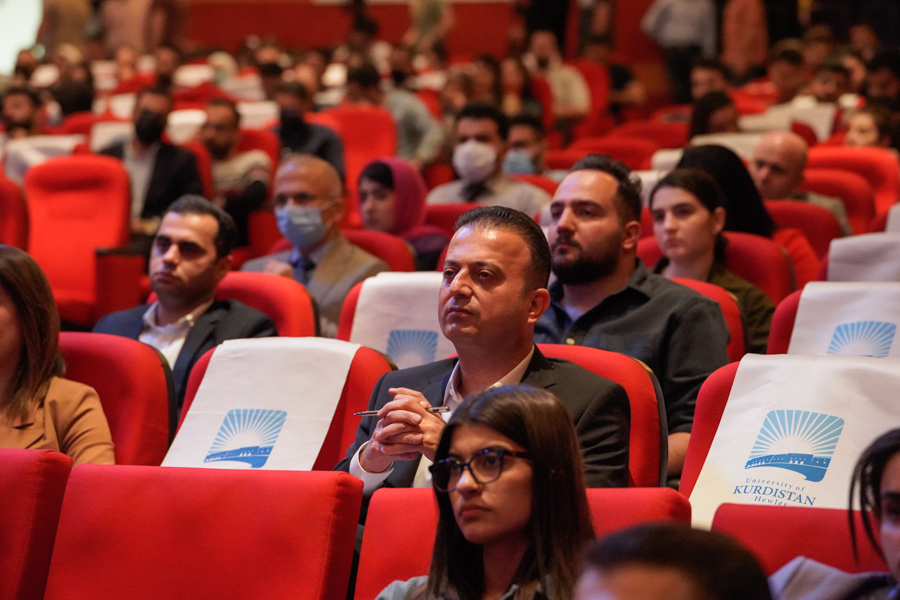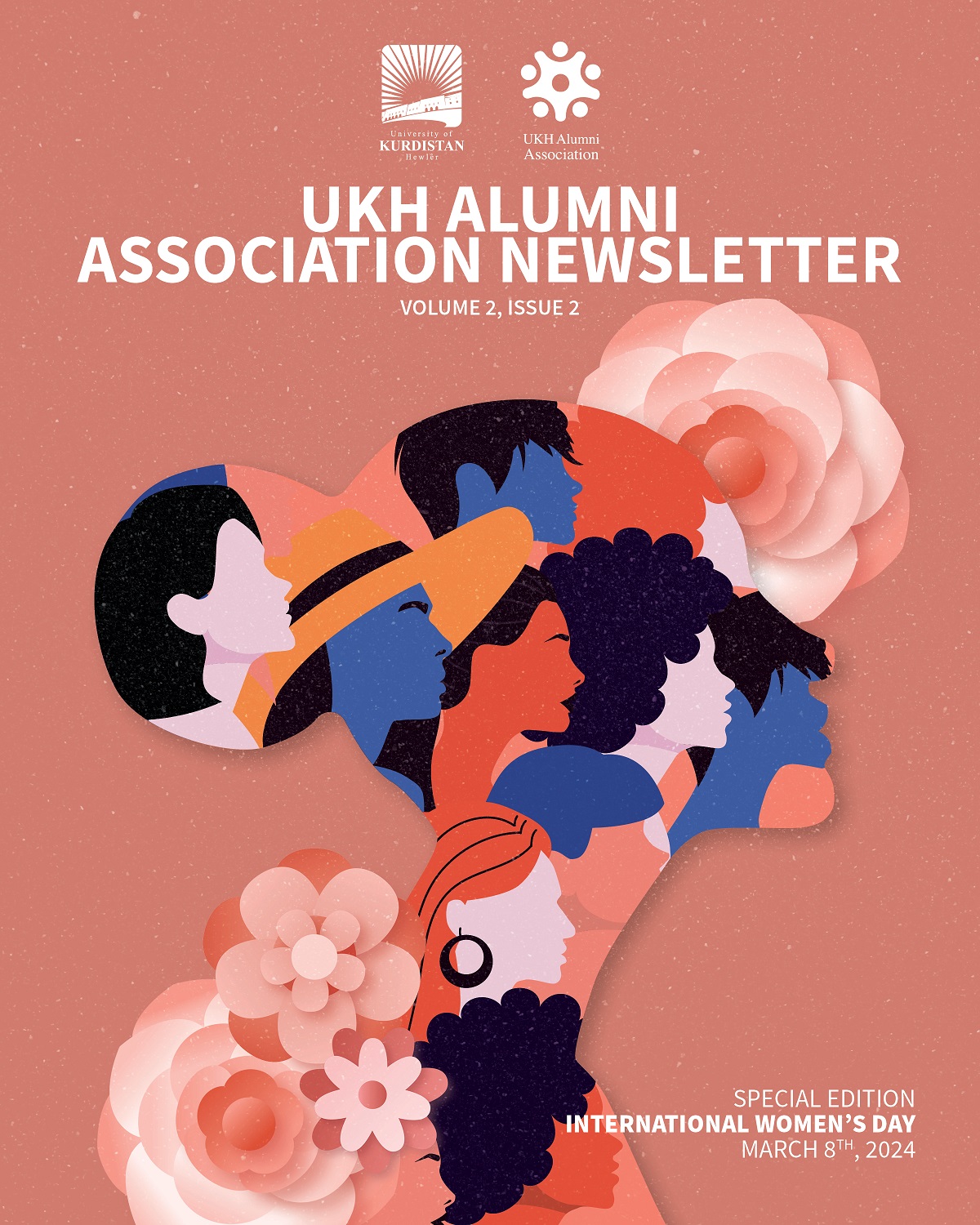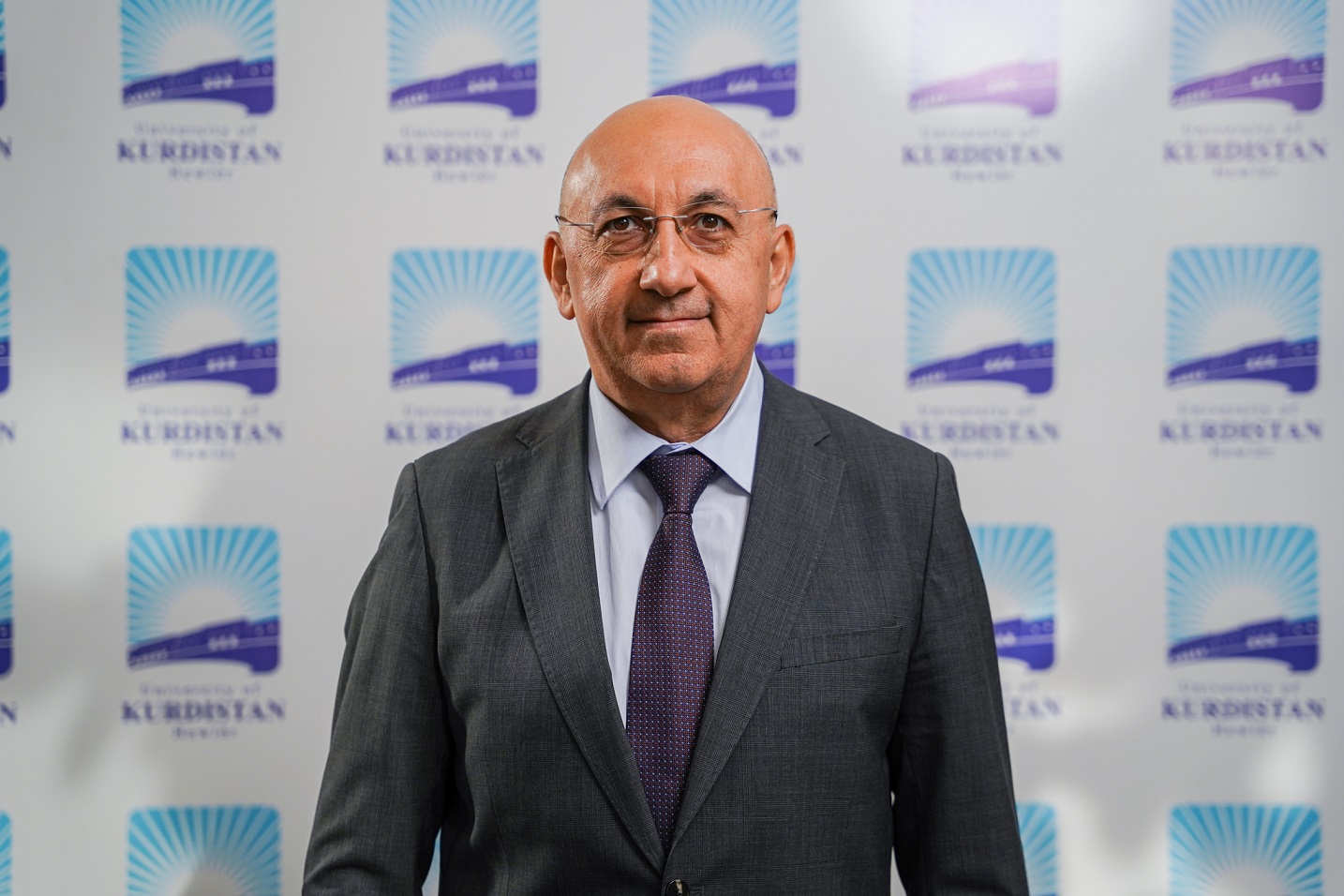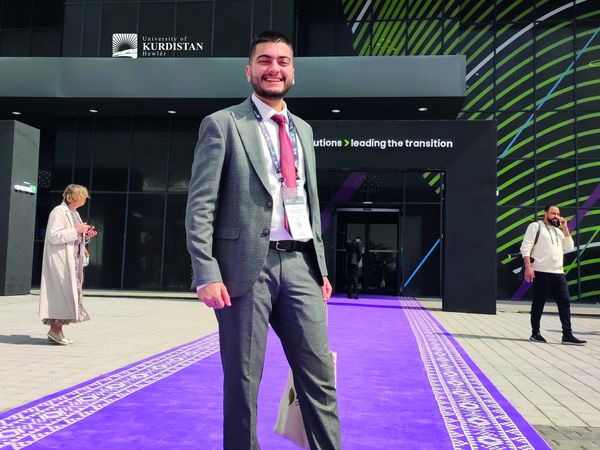Annual Presidential Lectures are new to public and private universities in the Kurdistan Region. UKH President Bill Rammell initiated and delivered the first of such a lecture in the region on April 6 2022, titled “Populism: Its Origins, Genesis and Analysis: Has Populism Peaked?”.
The event was planned in such a way that included various stakeholders and key people interested engaged in the topic. The lecture which took around 45 minutes was followed by a panel discussion and Q&A session.
The lecture started with a full house audience. UKH students and staff, alumni, government officials, journalists, media agencies and diplomats were all ears as soon as the lecture started.
The Lecture
The president opened his lecture by thanking the attendees for their time and interest. He shared the consideration of the drivers of populism, his own contention of the threat it poses, and suggestions of how populism can be counteracted. Bill gave an overview on the state of populism and populist leaders around the globe. He also dived in the deep historic roots of populism and how it originated and reached the current status.
Bill himself is a UK citizen who grew up in public housing in Harlow (the homes poorer people live in), attended a state comprehensive school, and was the first person in his family to go to University. So he has a real personal understanding of and commitment to the capacity of Higher Education to transform lives for the better and create opportunity. He has also spent long periods of his professional career working in higher education. Bill have also served as Minister of State for Education, with specific responsibility for Further and Higher Education.
“I chose to talk about populism because as a former MP and Government Minister, a university leader, an ordinary citizen, I am deeply worried about politics and the state of societies today. And bluntly, I’m extremely concerned by the rise of populism.” He said.
He also added “As good academics, we should track the history of populism. If we look back to the 20th century, we hardly hear mention of populism at all. Indeed, the concept was typically applied only by US historians to agrarian populists of the mid-19th century. The term “populism” was first consistently used to describe a movement in Kansas in the early 1890’s. “
Bill also focused on the role universities in facing populism and urged for collective action against it. “We change lives. The lives of our students and graduates. The lives of people within our community. The lives changed and enhanced through our research. Our graduates are our future as business leaders, doctors, scientists, and teachers. They will be the driving force in our local knowledge economies. Universities are engines of economic growth and drivers of social mobility. We have a fundamental role to play in addressing many of the very legitimate public concerns that people have – particularly when it comes to creating more job opportunities and helping communities to come together.” He said.
Panel Discussion
The lecture was followed by a panel discussion, moderated by UKH Vice President Keith Sharp.
Each of Bill Rammell, Head of Media and Information Department and the Kurdistan Regional Government (KRG) Spokesperson Dr. Jotiar Adil, media activist and university lecturer Yadgar Fayeq, Areen Ibrahim and Howger Mahmood, senior UKH students in Politics and International Relations Department membered the panel.
KRG Spokesperson Adil thanked UKH for organising the event and shed the light on the importance of the academic institutions in tackling the social problems. He also gave an overview on the government plans to create a free and healthy environment of freedom of speech and expression. He also stressed out on the importance of the social progress and adjustments to help minimize the threats of populism. “We need to carefully adjust ourselves with the current wave of social and technological changes” he said.
Yadgar Fayeq explained how populists target the political elite, public figures and individuals. “They tell you what the problem is, not how to solve it” and also gave an overview on how populists labels people selectively. “If you are with populists, you are a good person. If you are not with them, you are a ‘bad’ person” he said.
Each of Areen and Howger focused on education and how self-development could help individuals have the freedom of choosing their news sources and believe the most reliable one. “Young people need to educate themselves to avoid feeding into propaganda of populist leaders” Areen said.
The Q&A session was the last part of the event which resulted in an exciting and mind provoking debate between some of the speakers and the audience.
